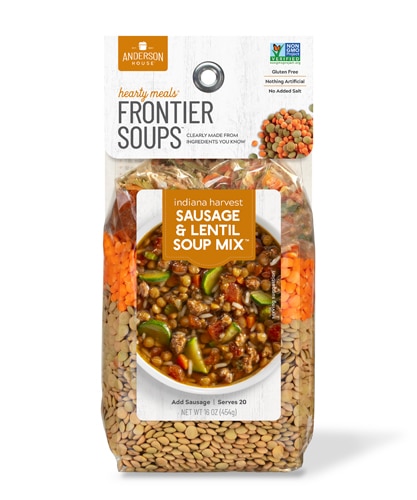Because each person is unique in terms of both their food preferences and which foods they best tolerate, it makes sense that personalized diets (or “bio-individual diets”) are now recommended by many health experts.
A diet that you enjoy and that gives you energy, while allowing you to maintain an ideal body weight, seems like the best of both worlds. This explains why many people have chosen to base their dietary choices on their blood type and genetics, in order to help prevent disease development and to live a long, healthy life.
Is there evidence that this approach works? Let’s find out what the blood type diet entails, and what the limited number of studies investigating the diet have found.
What is the blood type diet?
The blood type diet is an eating plan based on the (unproven) idea that your diet should be in accordance with your blood type.
The diet was created in the late 1990’s by a naturopathic physician named Dr. Peter D’Adamo, who authored the popular book Eat Right 4 Your Type, which has since sold over seven million copies.
How is the diet supposed to work? First you have to know your blood type: either O, A, B, or AB. Then you plan your meals around foods that are most encouraged for your type, while avoiding those that are believed to be problematic.
According to the 4YourType website, “You are a unique individual, and this is reflected in your blood type, your fingerprints, and your genetic profile…Your blood type is the key to your individuality. It helps you understand what makes you who you are, why certain foods are right for you and others are not.”
Proponents of the blood type diet believe that your blood type is significant because it reveals important information about your ancestors and therefore your genes. Dr. D’Adamo states that the different blood types help to tell the story of human evolution:
- Type O is the earliest type. It’s associated with “exceptional strength, a lean physique and a productive mind.” Os are encouraged to exercise regularly in order to help prevent inflammation, insulin resistance, and a poor functioning thyroid, and to consume a high-protein, somewhat low carb diet.
- Type A thrived with the change to an agrarian society. Although it’s unproven, it’s recommended that As prioritize stress reduction and a plant-based diet, since they are said to have high susceptibility for anxiety and heart issues.
- Type B adapted as humans migrated north into colder territories. This type is said to benefit from “everything in moderation,” including moderate exercise and a varied diet. Bs are believed by D’Adamo to be susceptible to increased risk for depression, insulin resistance and hypothyroidism.
- Type AB is the most modern and rarest type and a result of the intermingling of disparate groups. It’s said that ABs are more likely to deal with autoimmune diseases and age-related cognitive issues.
Pros and cons of the diet
Pros:
- Emphasizes the importance of a personalized nutrition plan, rather than a one-size-fits-all approach. This is based on the principle of bio-individuality, which means that nutritional requirements vary from person to person.
- Because mostly whole, unprocessed, organic foods are recommended for all blood types, the diet may help reduce the risk for health issues including insulin resistance, allergies, thyroid problems, and inflammatory conditions. For example, a 2014 study found that people following any of the blood type diets had some improvement in certain cardio-metabolic risk factors (such as cholesterol or blood pressure.)
- Encourages you to focus holistically on your overall well-being, including by eating a healthy diet, reducing stress and exercising.
- There’s no evidence that the diet is harmful, even if it hasn’t necessarily been proven to be effective. If nothing else, it increases self-awareness about eating habits and makes you think twice about your choices.
Cons:
- Although such claims have been made, it hasn’t been proven that your blood type determines how your body handles stress, manages your weight or reacts to certain foods.
- There’s generally a lack of evidence regarding if and how the diet works. Writers at Harvard Medical School state that “High-quality studies about the blood type diet had not been published in peer-reviewed medical literature… A 2013 study analyzed the world’s medical literature and found no studies demonstrating benefit from a blood type diet.”
- There’s criticisms over how the blood types are described; for example, some historians believe that type A was actually the first blood group to evolve in humans, not type O.
- Personal preferences aren’t taken into account, which means it may not be easy to maintain the diet (for example, some people might struggle with giving up most meat, dairy or grains).
- The diet may be expensive if supplements are included (they are encouraged for most blood types).
How to eat for your blood type
In order to eat for your blood type, you first have to know which type you are. If you don’t yet know this, there are several ways to go about finding out. You can donate blood, ask your doctor for a blood test, or use a home blood typing kit.
Below are diet recommendations for each blood type:
- Type O — Encouraged to eat filling, high-protein and high-fiber foods and to do vigorous exercise in order to prevent weight gain. Foods to emphasize include: fish, lots of vegetables, fruit, olive oil, sea vegetables, and grains, beans and legumes in small amounts. Foods that should be limited or avoided include: wheat, corn, lentils, and dairy.
- Type A — Believed to be best suited for a mostly plant-based diet with moderate amounts of fish. A healthy, predominately vegetarian diet for type As should include lots of vegetables, organic tofu/soy products, some seafood, whole grains, legumes, and a variety of fruit. Foods to avoid or limit include meat, dairy, wheat, and corn. Exercise should also be light to moderate, and calming activities should be done daily.
- Type B — Advised to eat a balanced, omnivorous diet that includes lots of variety, especially organic meats, dairy products, leafy greens and other vegetables, beans and eggs. B’s should limit how much chicken, corn, peanuts and wheat they consume.
- Type AB — AB’s are the rarest blood type and encouraged to eat a mixed, anti-inflammatory diet. Foods to emphasize are lamb, fish, dairy, tofu, legumes, fruits and lots of vegetables, chicken, corn and certain beans/grains should be limited.




